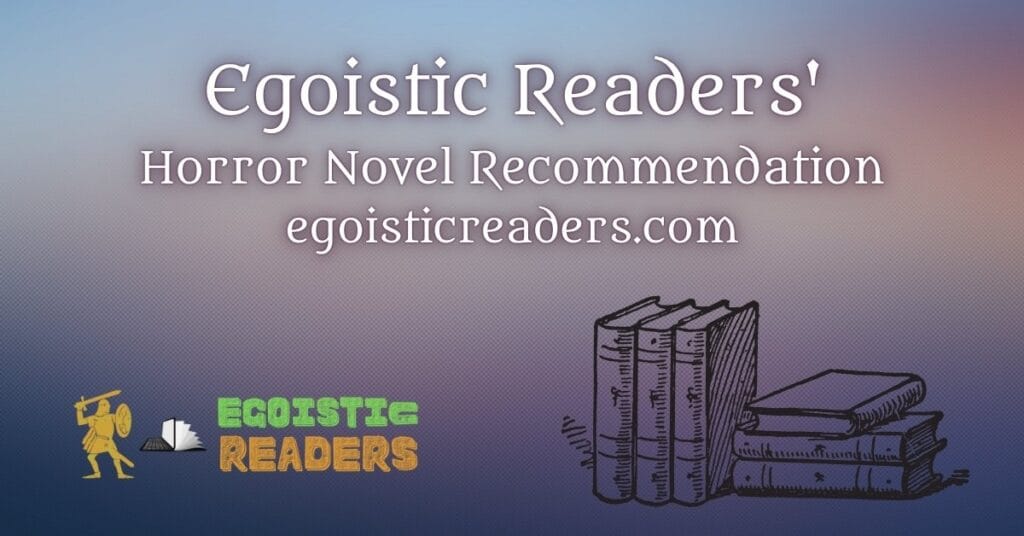Thomas Hardy occupies a unique and unshakable place in the landscape of English literature. While the 19th century produced a constellation of novelists—Charles Dickens with his theatrical social commentary, George Eliot with her intellectual introspection, the Brontë sisters with their tempestuous passions, and Jane Austen with her elegant dissections of manners—Hardy stands apart for his grim realism, relentless fatalism, and unsparing view of human existence entangled in the merciless wheels of fate and society. Hardy’s novels are not simply stories; they are philosophical explorations of human suffering, irony, and the limits of individual agency. Unlike Austen, who largely confined her characters within drawing rooms, or Dickens, whose characters could miraculously redeem themselves through moral transformations, Hardy’s protagonists often find themselves crushed under the weight of invisible, indifferent forces. His is a world where nature is not a benign backdrop but a participant, and society, with its rigid moral codes and oppressive traditions, becomes an antagonist in its own right.
What makes Hardy different is his fusion of poetic vision with prose narrative, his anthropomorphising of landscapes, and his deliberate confrontation of taboo subjects—female sexuality, illegitimacy, religious scepticism, and class immobility—at a time when English fiction largely remained guarded. His fictional Wessex is not only a meticulously rendered geography but a moral and existential map, against which human lives are measured, judged, and often found wanting. In this article, we revisit five of Hardy’s most unforgettable novels—narratives that continue to challenge, disturb, and fascinate, even more than a century after they were first published. Want more? Explore this article: Thomas Hardy Writing Style
Far from the Madding Crowd (1874)
Hardy’s first major literary success, Far from the Madding Crowd, introduced readers to the pastoral world of Wessex but quickly undercut any romantic expectations with its tragic realism and psychological depth. While the novel contains elements of comedy, romance, and rustic humour, its enduring strength lies in its exploration of human desire, pride, and the irrevocable consequences of our choices. The character of Bathsheba Everdene, independent, spirited, and contradictory, broke with Victorian norms of demure femininity. Her relationships with the stoic shepherd Gabriel Oak, the pompous but decent Boldwood, and the reckless Sergeant Troy set the stage for a tense drama that unravels both personal and social fabric.
Hardy’s treatment of time, labour, and the rhythms of the natural world lends the novel a timeless quality. However, what renders this work unforgettable is its subtle movement between comedy and catastrophe, its meditation on the limits of self-knowledge, and the glimmer of redemption it finally offers—an exception rather than a rule in Hardy’s oeuvre. While Gabriel Oak embodies a moral centre that survives the storm, it is Bathsheba’s journey from impulsive independence to a more seasoned sense of self that embodies Hardy’s understanding of personal growth through suffering.
The Return of the Native (1878)
Among Hardy’s darker narratives, The Return of the Native is a towering work of psychological complexity and metaphysical resonance. Egdon Heath, the brooding, all-encompassing landscape in the novel, is not merely a setting but a character—eternal, impassive, and emblematic of nature’s indifference. In a literary climate dominated by polite society novels, Hardy’s choice to set his drama in an isolated heath populated by elemental, almost mythic figures was revolutionary.
The novel’s protagonist, Clym Yeobright, returns to his native Egdon with utopian aspirations of educating the rural poor. However, his dreams are met with disappointment, and his personal life descends into ruin. His wife, the alluring and restless Eustacia Vye, yearns for a more refined and urban existence. Their incompatible desires, fuelled by pride and miscommunication, lead to a sequence of irreversible tragedies. The novel, steeped in fatalism, reveals how human will is frequently thwarted by circumstance and flawed perception.
Hardy is less interested in narrative closure than in moral and existential inquiry here. The role of coincidence, the inescapability of one’s nature, and the tragic consequences of human blindness converge in a story that evokes the classical tragedy. In modern terms, the novel might be read alongside Dostoevsky’s explorations of suffering and existential torment or even Camus’s confrontation with the absurd. Yet it remains deeply rooted in the English countryside, proving that universal questions can be asked in provincial accents.
Tess of the d’Urbervilles (1891)
Possibly Hardy’s most famous and controversial novel, Tess of the d’Urbervilles, is a masterclass in tragic narrative. Subtitled “A Pure Woman Faithfully Presented,” the novel launched a storm of criticism upon its publication for its sympathetic portrayal of a fallen woman and its unflinching exposure of the moral hypocrisy of Victorian society. Tess Durbeyfield, the novel’s protagonist, is a victim not of her own choices alone but of a complex web of social expectations, gender injustice, and cosmic irony.
The narrative chronicles Tess’s journey from innocence to experience, a journey marked by love, betrayal, resilience, and ultimately, destruction. Alec d’Urberville’s seduction—or rape, as many scholars now agree—and Angel Clare’s moral cowardice present Tess with two versions of male authority, both of which fail her in different ways. Yet Tess never ceases to be a luminous figure, tragic not because she is weak but because she is too human for the world she inhabits.
Hardy’s prose in Tess is poetic, infused with melancholy and philosophical introspection. He draws heavily on biblical, mythological, and pastoral imagery, weaving a narrative that blurs the line between the real and the symbolic. Compared with foreign literary counterparts, Tess stands shoulder to shoulder with Anna Karenina in terms of emotional depth and with Hester Prynne from The Scarlet Letter in moral complexity. However, Hardy’s conclusion is far more radical—he leaves Tess not morally triumphant but crushed, a martyr to a society unwilling to confront its sins.
Jude the Obscure (1895)
Perhaps the most scathing indictment of Victorian values in Hardy’s body of work, Jude the Obscure is the author’s bleakest and most disturbing novel. Its themes—class barriers, the futility of formal education for the poor, institutional religion, and the institution of marriage—combine to form a potent critique of the era’s most cherished institutions. The novel was so controversial upon publication that Hardy was compelled to retreat from novel-writing altogether, turning his attention solely to poetry thereafter.
The story follows Jude Fawley, a working-class man with dreams of becoming a scholar at Christminster (a thinly veiled Oxford). Denied access to education and respectability due to his class, Jude is constantly thwarted in his attempts at personal betterment. His relationship with Sue Bridehead, a woman who defies conventional femininity and religious orthodoxy, further complicates his life. Their non-conforming union and the tragic fate of their children push the novel into harrowing psychological and moral territory.
The child’s infamous line—“because we are too many”—is perhaps the darkest distillation of Hardy’s view of the social and existential burdens that crush the individual. Jude the Obscure is closer in mood and method to the works of Kafka or Zola than to Hardy’s English contemporaries. The novel remains deeply relevant in its exploration of systemic injustice, disillusionment, and the tragic cost of intellectual and emotional yearning in a conformist world.
The Mayor of Casterbridge (1886)
A study in the tragedy of character, The Mayor of Casterbridge is Hardy’s most Shakespearean novel. In Michael Henchard, Hardy created a protagonist whose rise and fall are shaped almost entirely by his own impulsive decisions, pride, and inability to forgive. Unlike Jude or Tess, Henchard is not primarily a victim of circumstance, but a man undone by himself. This makes his story both more dramatic and more psychologically complex.
The novel opens with one of the most shocking scenes in Victorian fiction: a man, in a drunken rage, sells his wife and daughter at a country fair. This act haunts Henchard for the rest of his life. When he later rises to become a prosperous mayor, the past inevitably returns, and his inability to manage his guilt and temper leads to personal ruin. The emotional landscape of the novel is raw, and the narrative revolves around redemption thwarted, self-destruction, and the search for forgiveness.
Hardy’s nuanced portrayal of fate here is less about cosmic indifference and more about moral causality. Henchard’s flaws—hubris, possessiveness, jealousy—become the very tools of his downfall. The novel shares thematic resonance with the classical tragedies of Sophocles and Shakespeare’s King Lear, yet its setting in a provincial English town and its keen attention to social dynamics root it firmly in Hardy’s world. The Mayor of Casterbridge is a compelling reminder that the deepest tragedies are often of our own making.
In revisiting these five novels, one realises that Thomas Hardy was not merely a chronicler of rustic life or a regional novelist, as some critics once dismissed him. He was a philosopher-novelist, a poet of the human condition, whose works interrogate the most pressing dilemmas of identity, freedom, morality, and suffering. His vision may be bleak, but it is never shallow. Hardy’s characters do not merely live—they endure, confront, fall, and sometimes rise. His landscapes do not just frame action—they reflect and deepen it.
In an age that often seeks comfort, closure, and redemption in fiction, Hardy’s refusal to offer easy answers makes him a more challenging, but also more rewarding writer. If you are willing to embrace literature that confronts rather than consoles, that questions rather than confirms, and that leaves you more disturbed than delighted. These five unforgettable novels by Thomas Hardy must be read not only for their literary brilliance but also for their courageous, uncompromising look into the abyss of the human soul.
Alka for Egoistic Readers



